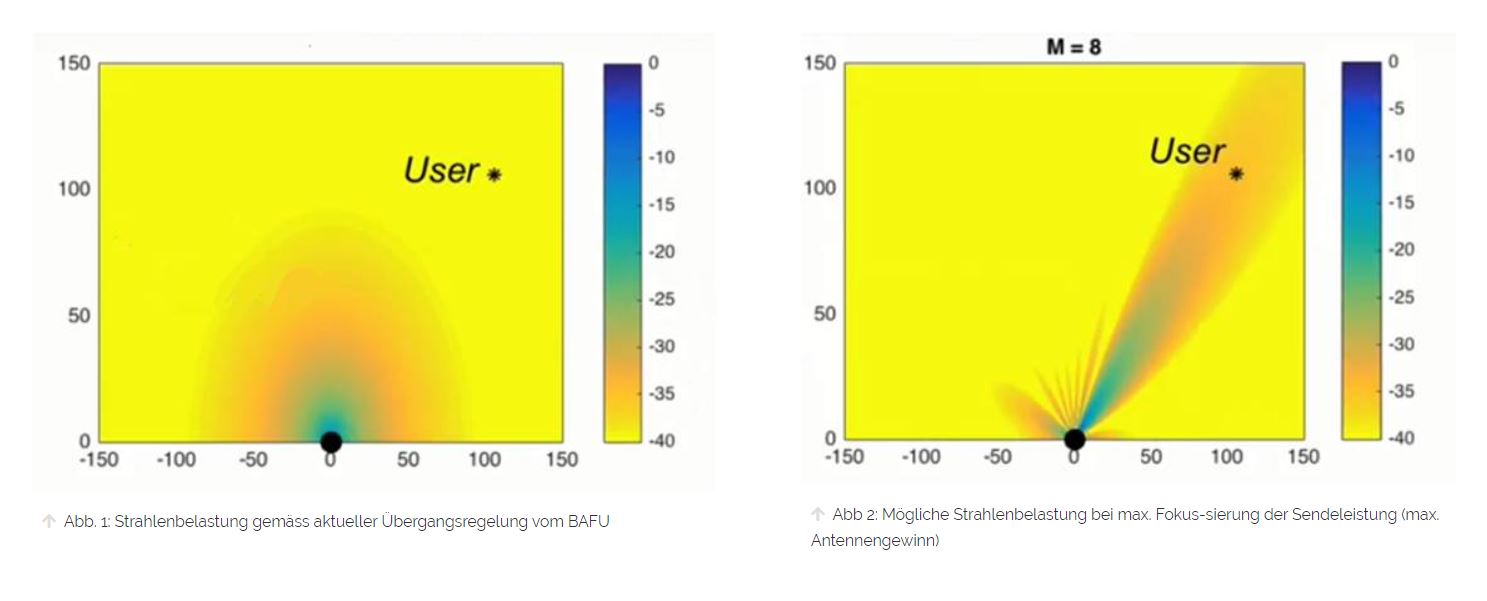5G: Federal Council decides how to proceed
Mobile communications, and 5G in particular, can play an important role in digitization. At the same time, there are reservations about the expansion of the 5G network. Against this background, the Federal Council has determined the further course of action in the area of mobile communications and 5G. The association "Schutz vor Strahlung" is basically satisfied with the Federal Council's decision, but criticizes the transitional arrangement.

On April 22, 2020, the Federal Council defined the further procedure regarding the fifth generation of mobile communications (5G). In doing so, it took into account the fact that 5G plays an important role in digitization. At the same time, it took into account the fact that the introduction of the 5G standard and the expansion of the 5G network aroused reservations in the cantons and in parts of the population. The decision was also based on the report of the working group "Mobile radio and radiation" which has been available since November 2019, according to the Federal Council.
Enforcement aid for adaptive antennas
The next step is for the Uvek to draw up an enforcement guide for dealing with the new adaptive antennas, according to the Federal Council's statement. Adaptive antennas would send signals specifically in the direction of users. In order to create transparency as to how much the population would actually be affected by such antennas, test measurements would first be necessary. Based on these results, the Uvek will develop an implementation guide. Until this is available, adaptive antennas are to be assessed in the same way as conventional antennas. This will ensure the protection of the population at all times, according to the press release.
Plant limit values are maintained
In addition, the Federal Council has decided to implement the six accompanying measures proposed by the working group "Mobile Telecommunication and Radiation" in its report: Priority is given to the further development of the monitoring of radiation exposure as well as the creation of the new environmental medical advisory center for non-ionizing radiation. In addition, simplifications and harmonizations in enforcement, better information of the population and an intensification of research on the health effects of mobile radio and radiation are planned.
At present, the Federal Council would like to retain the current installation limits for the protection of the population against non-ionizing radiation. The working group was unable to agree on a joint recommendation on this point, it says. Parliament has twice in the recent past refused to relax the limits for radiation exposure.
Sustainable mobile network
As a further element for dealing with mobile communications and 5G, the Uvek intends to press ahead quickly with the work on responding to Postulate 19.4043 Häberli-Koller "Sustainable mobile communications network". The Uvek will submit a report to the Federal Council by the end of 2021 on the options for the sustainable design of mobile networks. This report should provide a better basis for decision-making also for future mobile radio technologies, as it says in conclusion in the press release of the Federal Council.
What does the "Association for Protection from Radiation" say?
The Association "Protection from radiation welcomes the planned approach, albeit with certain reservations, as he writes.
Parliament has rejected an increase in the limit values twice in recent years. The Federal Council is now doing the same and will not relax the current limits. The "Protection from Radiation" association is pleased with this decision. At the same time, however, it cautions that the future enforcement recommendation for adaptive antennas should in any case take into account the maximum power of the transmitter and not an averaged value. Averaging would be tantamount to an indirect increase in the limit value.
Transitional regime protects insufficiently
On behalf of the Federal Council, the Federal Department of the Environment, Transport, Energy and Communications (Uvek) will draw up an enforcement recommendation for adaptive antennas based on test measurements. Until this is available, adaptive antennas are to be assessed like conventional antennas. However, according to Rebekka Meier of the association "Schutz vor Strahlung" (Protection from Radiation), this transitional regulation does not protect against exceeding the limit values: "According to the transitional regulation of the Federal Council, the moment in which the adaptive antenna radiates in the width is assessed (Fig. 1, see below). However, if the signal is focused (Fig. 2, see below), our limits may be exceeded. Adaptive antennas must therefore be assessed at the moment of maximum antenna gain (Fig. 2) in order to maintain the precautionary value and must not be assessed in the same way as conventional antennas."
Furthermore, adaptive antennas can adjust themselves to the user's needs and change their settings up to 83 million times per day, as the association further writes. However, they are only checked once a day, because the existing quality assurance system has not been further developed for adaptive antennas, according to the Federal Office for the Environment. Until the enforcement aid is developed, there is no quality assurance system for adaptive antennas and thus no control.
The association therefore calls on the building authorities to refrain from issuing building permits in view of the great uncertainties regarding control, measurements and health risks, and to put the procedures on hold for the time being. Instead, the communities should focus on a community-owned fiber optic network.

Source: Federal Council, "Protection from Radiation" Association
See also article "EU assesses security risks of 5G networks"









